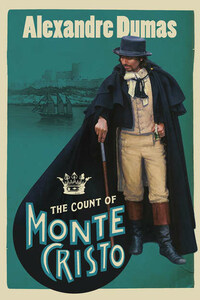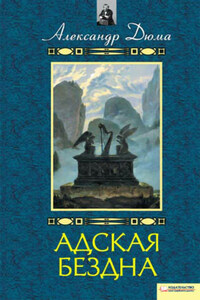ON THE 24TH of February, 1815, the lookout of Notre-Dame de la Garde signalled the three-master, the Pharaon, from Smyrna, Trieste, and Naples.
As usual, a pilot put off immediately, and rounding the Château d’If, got on board the vessel between Cape Morgion and the Isle of Rion.
Immediately, and according to custom, the platform of Fort Saint-Jean was covered with spectators; it is always an event at Marseilles for a ship to come into port, especially when this ship, like the Pharaon, had been built, rigged, and laden on the stocks of the old Phocée, and belonged to an owner of the city.
The ship drew on: it had safely passed the strait, which some volcanic shock has made between the Isle of Calasareigne and the Isle of Jaros; had doubled Pomègue, and approached the harbour under topsails, jib, and foresail, but so slowly and sedately that the idlers, with that instinct which misfortune sends before it, asked one another what misfortune could have happened on board. However, those experienced in navigation saw plainly that if any accident had occurred, it was not to the vessel herself, for she bore down with all the evidence of being skilfully handled, the anchor ready to be dropped, the bowsprit-shrouds loose, and beside the pilot, who was steering the Pharaon by the narrow entrance of the port of Marseilles, was a young man, who with activity and vigilant eye, watched every motion of the ship, and repeated each direction of the pilot.
The vague disquietude which prevailed amongst the spectators had so much affected one of the crowd that he did not await the arrival of the vessel in harbour, but jumping into a small skiff, desired to be pulled alongside the Pharaon, which he reached as she rounded the creek of La Réserve.
When the young man on board saw this individual approach, he left his station by the pilot, and came, hat in hand, to the side of the ship’s bulwarks.
He was a fine, tall, slim young fellow, with black eyes, and hair as dark as the raven’s wing; and his whole appearance bespoke that calmness and resolution peculiar to men accustomed from their cradle to contend with danger.
“Ah! is it you, Dantès?” cried the man in the skiff. “What’s the matter? and why have you such an air of sadness aboard?”
“A great misfortune, M. Morrel,” replied the young man,—“a great misfortune, for me especially! Off Civita Vecchia we lost our brave Captain Leclere.”
“And the cargo?” inquired the owner eagerly.
“Is all safe, M. Morrel; and I think you will be satisfied on that head. But poor Captain Leclere———”
“What happened to him?” asked the owner, with an air of considerable resignation. “What happened to the worthy captain?”














